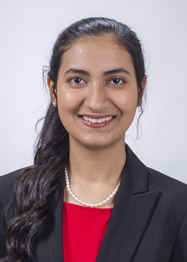When I was applying to medical school, many people told me to make sure that my application reflected that medical school would not be the hardest thing I had ever done. At the top of my game in undergrad, I felt like this was a no-brainer. I mean, how hard could med school be, right? Now that I am halfway through my third year of medical school, I finally understand what they meant. Medical school is an entirely different world that is hard to understand without being immersed. The level of pressure, while nearly all internal, is unlike any other experience, even for those who have had prior careers. There is a lot at stake. We have all spent many years trying to get to this stage. On one hand, it is a privilege to be in medical school, as so many struggle for that coveted admission. Nonetheless, it’s not uncommon to feel that you are sacrificing the prime of your life to be in training: missing out on key life experiences that you may not get again. It is difficult for many to understand how one could prioritize studying, an exam, or simply being in a clinic/hospital over a wedding, funeral, or other life event. It is not as if we are not human and do not have emotions, but it is a choice we made when entering this profession. Our loved ones must understand that in the majority of cases, medicine will come first.
While all this is easier said than done, the training required to become a doctor—often seven to eleven years after an undergraduate degree—does take a toll. There are times when we think, “Have I made the right decision?” or “How did they let someone like me in medical school?” Moments like these can be few and far between or they can be constantly in the back of your mind, making the journey seem like an endless “go, go, go.” When plans fall through or you have a discouraging day, the latter can cloud your better judgment and impact your self-confidence. Left unaddressed, you start to wander mindlessly on this path for which you once had a fierce passion. This cognitive dissonance can seem paralyzing.
“What if I am the only one who feels that way? If I tell someone, will they judge me?” Sharing these feelings with others, even those on the journey with you, can seem daunting. Admitting this uncertainty can make you feel like a failure or fraud because you are in some way letting down those who believed in you and invested in your journey. But this is where the guilt must end.
We are blessed to be living in an age where “wellness” is starting to become an accepted concept, and we are the generation who has to ensure that conversations surrounding this continue to grow. The culture of medicine is changing, and change is necessary. There is no longer a need for medical training to be as gruesome as it once was. It is okay for doctors in all specialties to be able to have a life outside of medicine. In fact, bursts of time away from medicine is what helps keep the fire burning. If it is constantly blazing at full force, it will not be long until there are only withers fighting to hold onto a spark. We are now seeing the consequences of this in the form of “burnout.” While we do not have a universal solution yet, we can contribute by making efforts to normalize these feelings, which I guarantee every single person in my class has had at one point since starting medical school. By taking the embarrassment and shame out of such conversations, just as we do when taking a good social history, we can work towards helping each other feel better about our internal thoughts which otherwise lead many into sunken isolation.
These feelings are by no means easy to share. Once you realize that others, even those whom you would have never expected, also struggle with these thoughts, it becomes easier to internalize it as a norm rather than an oddity. A norm that should not necessarily exist, but by acknowledging, we make the first step towards changing. It is an honor to be on this journey, and wanting change should not make that seem any less.
Pareena Kaur is a member of the class of 2021 at the University of Arizona College of Medicine - Phoenix. She is originally from India, but spent her childhood between Arizona and Canada. She graduated from the University of Arizona in 2017 with a Bachelor’s degree in Physiology and minors in French and Neuroscience. In her free time, Pareena enjoys spending time with friends and family, traveling, and dancing. She is a big foodie, and Indian street food is her favorite!


